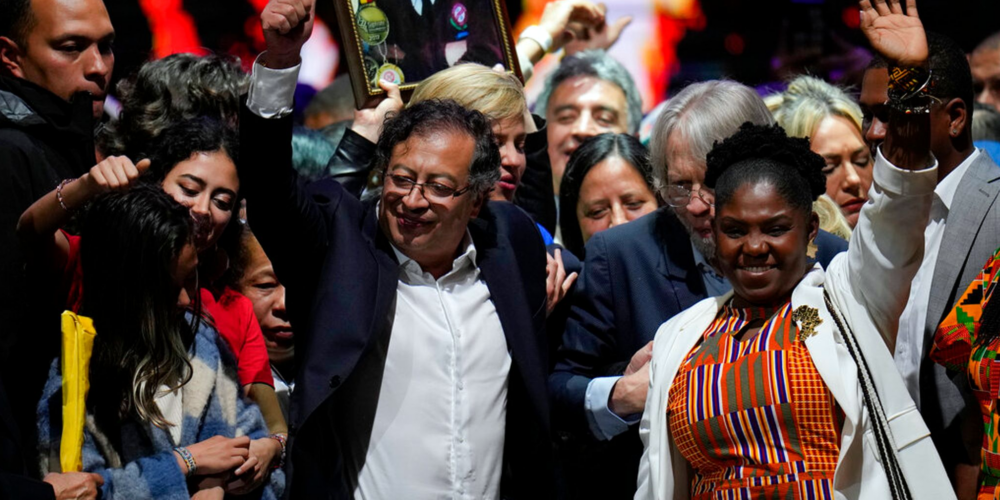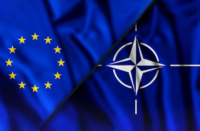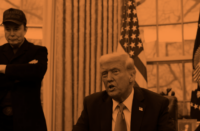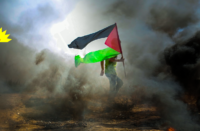The electoral victory of Gustavo Petro in Colombia is, without a doubt, one of the most significant political developments in Latin America in the last decade.
Colombia has traditionally been a stronghold of conservatism. The left and social movements have been routinely devastated for seven decades of unabashed right-wing terror.
Colombia holds a number of shameful records. It is the most dangerous country in the world in which to be a trade unionist, with more than half the trade unionists killed annually in the world murdered there. It is the country with the biggest internally displaced population: a staggering 8 million. It has one of the worst land distributions in the world, with a Gini coefficient of 0.897 in land distribution and where 0.1 per cent own 59 per cent of the arable land. It is, with Brazil, the most dangerous country in which to be an environmental activist.
About 1,500 community activists and nearly 400 demobilised guerrillas were assassinated since the peace agreement between the government and FARC-EP guerrillas was signed in 2016.
These records are the expression of systematic class violence from the tiny oligarchy, with their regional lackeys, against any type of alternative. Four left-wing candidates were murdered before the 1990 elections alone—an election that, had it not been for all these murders, the left wing would in all likelihood have won.
In the recent election Petro won despite a number of failed attacks against him, while some Petro campaigners were murdered on the election day, including two youths in the Pacific coastal town of Guapi.
Not surprisingly, Colombia has also been the most closely aligned country to US imperialism in the region. The various Colombian governments for the past decades have slavishly followed all Washington’s dictates. Colombia was the only country to participate in the Korean war in the 1950s; it is the only NATO “ally” in the region; it has served as a platform for destabilising and launching putschist adventures into neighbouring Venezuela; and it has massacred thousands of its own citizens to comply with the US-decreed so-called war on drugs.
Colombia has been the scene of one of the biggest US military interventions outside the Middle East: “Plan Colombia,” a counter-insurgent operation designed to attack left-wing guerrillas with the excuse of counter-narcotics operations.
With ten US military bases, Colombia is the third-largest recipient of US military aid (after Israel and Egypt, with Ukraine possibly competing right now).
Colombia has one of the biggest armies in the hemisphere. Its combined forces—including a militarised police—amount to nearly half a million people. This is not counting the paramilitary tentacles that are often in collusion, if not in open connivance, with the official army. It is no coincidence that one of the first political responses to Petro’s triumph was the resignation of the Colombian ambassador to the United States.
The importance of the triumph of Petro, therefore, cannot be overstated. This is the expression of a long-brewing malaise against the regime, growing from the very entrails of society. The support for Petro came from those long forgotten, ignored, marginalised: smallholders, indigenous, the urban poor, the black population, impoverished middle classes—all those who had been at the receiving end of the regime’s policies and violence.
This electoral triumph is the result of the cycle of protests that shook Colombia and its oligarchic peace between 2019 and 2021, which were themselves the expression of a long cycle of protest, which began with the indigenous and sugar workers’ mass protests in 2008.
Petro won’t have it easy. He assumes power in a country that suffers from endemic dependence on the United States, a country that is broke, with massive inequalities and a rekindled armed conflict. He will face the fierce opposition of the oligarchic politicians who are entrenched in the parliament but also in all the branches and apparatus of the state. His government will face the structural and violent racism of an elite that despises Francia Márquez, an Afro-Colombian activist who has become vice-president.
This opposition, judging from experience, will not be merely legal but will be willing to mobilise its paramilitary armies to oppose progressive measures.
Petro, however, has the opportunity to launch a process of change that should go beyond his four-year term, one that depends largely on the power of social mobilisation. None of the challenges he faces will be solved by decree. Redistributive measures regarding the land question and the massive inequalities in the country, developing a sovereign national policy that respects the independence of Colombia’s neighbours, transforming a largely extractive economy into a productive and sustainable one, giving priority to resources to guarantee infrastructure and social services, as opposed to war, a renewed political solution to the continuing armed conflict—they will require both popular mobilisation and political resolve.
While some of Petro’s political supporters are already whispering about political moderation, he would better listen to the protest rumbles on the streets.
What has happened in Colombia is nothing short of historic. The “Israel of Latin America”—as the oligarch and former president Juan Manuel Santos fondly described Colombia—received a massive blow, and has begun to change already.






